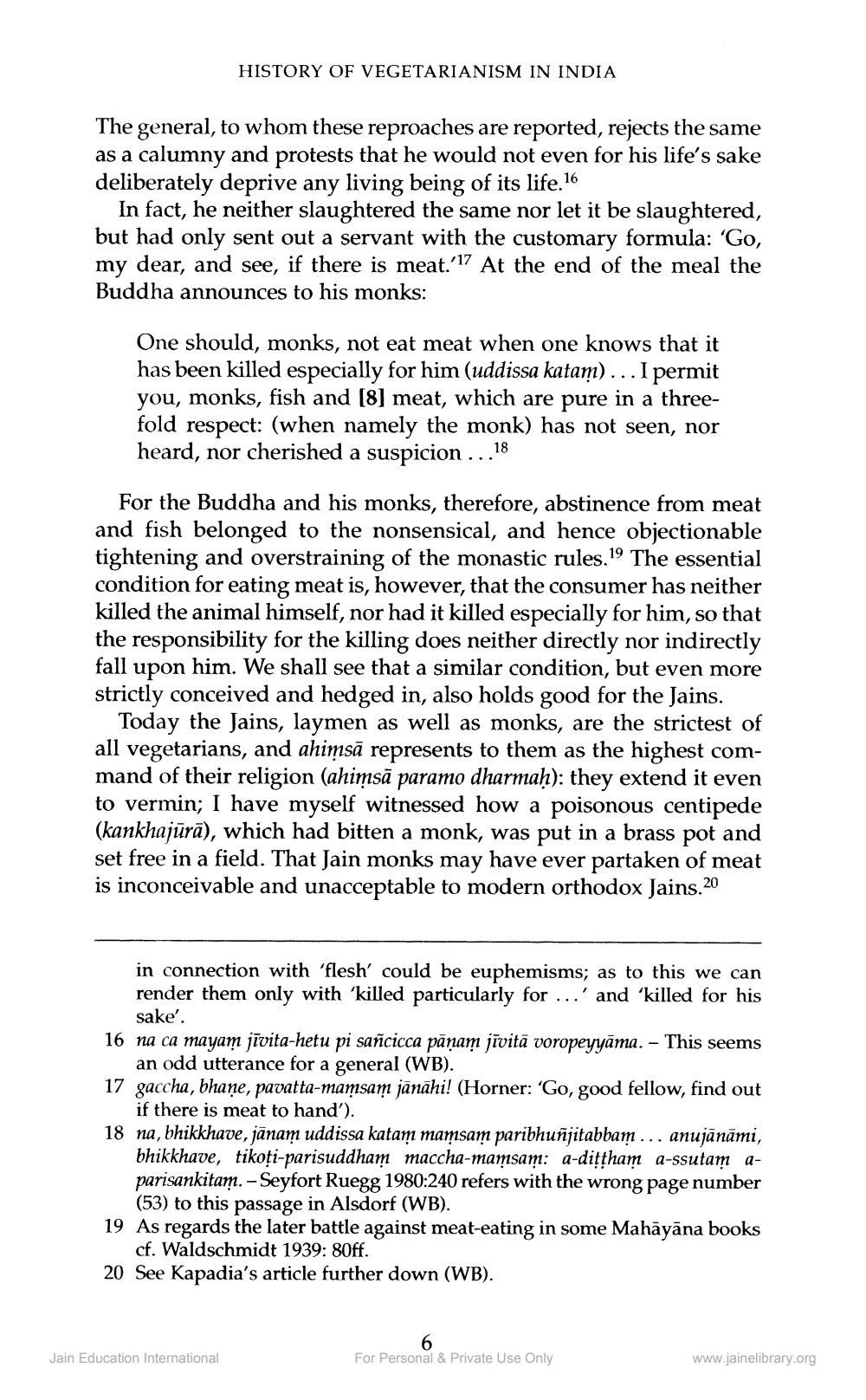________________
HISTORY OF VEGETARIANISM IN INDIA
The general, to whom these reproaches are reported, rejects the same as a calumny and protests that he would not even for his life's sake deliberately deprive any living being of its life.16
In fact, he neither slaughtered the same nor let it be slaughtered, but had only sent out a servant with the customary formula: 'Go, my dear, and see, if there is meat.'17 At the end of the meal the Buddha announces to his monks:
One should, monks, not eat meat when one knows that it has been killed especially for him (uddissa katam)... I permit you, monks, fish and [8] meat, which are pure in a threefold respect: (when namely the monk) has not seen, nor heard, nor cherished a suspicion ...18
For the Buddha and his monks, therefore, abstinence from meat and fish belonged to the nonsensical, and hence objectionable tightening and overstraining of the monastic rules. 19 The essential condition for eating meat is, however, that the consumer has neither killed the animal himself, nor had it killed especially for him, so that the responsibility for the killing does neither directly nor indirectly fall upon him. We shall see that a similar condition, but even more strictly conceived and hedged in, also holds good for the Jains.
Today the Jains, laymen as well as monks, are the strictest of all vegetarians, and ahimsā represents to them as the highest command of their religion (ahimsā paramo dharmaḥ): they extend it even to vermin; I have myself witnessed how a poisonous centipede (kankhajūrā), which had bitten a monk, was put in a brass pot and set free in a field. That Jain monks may have ever partaken of meat is inconceivable and unacceptable to modern orthodox Jains.20
in connection with 'flesh' could be euphemisms; as to this we can render them only with 'killed particularly for ...' and 'killed for his
sake'. 16 na ca mayam jīvita-hetu pi sañcicca pāņam jīvitā voropeyyāma. - This seems
an odd utterance for a general (WB). 17 gaccha, bhane, pavatta-mamsam jānāhi! (Horner: 'Go, good fellow, find out
if there is meat to hand'). 18 na, bhikkhave, jänam uddissa katam mamsam paribhuñjitabbam... anujānāmi,
bhikkhave, tikoti-parisuddham maccha-mamsam: a-dittham a-ssutam aparisankitam. -Seyfort Ruegg 1980:240 refers with the wrong page number
(53) to this passage in Alsdorf (WB). 19 As regards the later battle against meat-eating in some Mahāyāna books
cf. Waldschmidt 1939: 80ff. 20 See Kapadia's article further down (WB).
Jain Education International
For Personal & Private Use Only
www.jainelibrary.org




